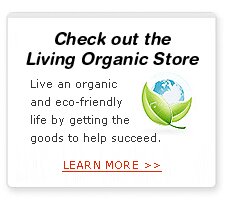Living Organic Online Store
Products tagged with: crisis
Emergency Food Storage & Survival Handbook: Everything You Need to Know to Keep Your Family Safe in a Crisis
Always Be Prepared What if your life was disrupted by a natural disaster, food or water supply contamination, or any other type of emergency? Do you have the essentials for you and your family? Do you have a plan in the event that your power, telephone, water and food supply are cut off for an extended amount of time? What if there were no medical or pharmaceutical services available for days, weeks, or months? How prepared are you? With this guide by your side, you and your family will learn how to plan, purchase, and store a three-month supply of all the necessities--food, water, fuel, first-aid supplies, clothing, bedding, and more--simply and economically. In other words, this book may be a lifesaver. Inside you'll find 10 steps to an affordable food storage program plus how to: -Prepare a home "grocery store" and "pharmacy" -Use what you store and store what you use -Store water safely and provide for sanitation needs -Create a first-aid kit, car kit, and 72-hour emergency kit for the whole family -And many more invaluable hints and tips "This clear, concise, step-by-step program is not only affordable and doable, it's essential in these uncertain times. Now, everyone from apartment dwellers to basement owners can store a three-month supply of the essentials, including peace of mind " -- Joni Hilton, author of "Once-a-Week Cooking Plan" and "Cooking Secrets My Mother Never Taught Me"
The Meat Crisis: Developing More Sustainable Production and Consumption
Meat and dairy production and consumption are in crisis. Globally 60 billion farm animals are used for food production every year. It is well accepted that methane emissions from cattle and other livestock are major contributors to greenhouse gas levels and to climate change. The Food and Agriculture Organization of the United Nations (FAO) predicts a rough doubling of meat and milk consumption by 2050, with particularly rapid growth occurring in the developing economies of Asia. This could raise the number of farm animals used annually to nearer 120 billion. What will this mean for the health and wellbeing of those animals, of the people who consume ever larger quantities of animal products, and for the health of the planet itself?This powerful and challenging book explores these issues surrounding the global growth in the production and consumption of meat and dairy animals and products, including cultural and health factors, and the implications of the likely intensification of farming for both small-scale producers and for the animals. Several chapters explore the related environmental issues, from resource use of water, cereals and soya, to the impact of livestock production on global warming and issues concerning biodiversity, land use and the impacts of different farming systems on the environment. A final group of chapters addresses ethical and policy implications for the future of food and livestock production and consumption. The overall message is clearly that we must eat less meat to help secure a more sustainable and equitable world.


